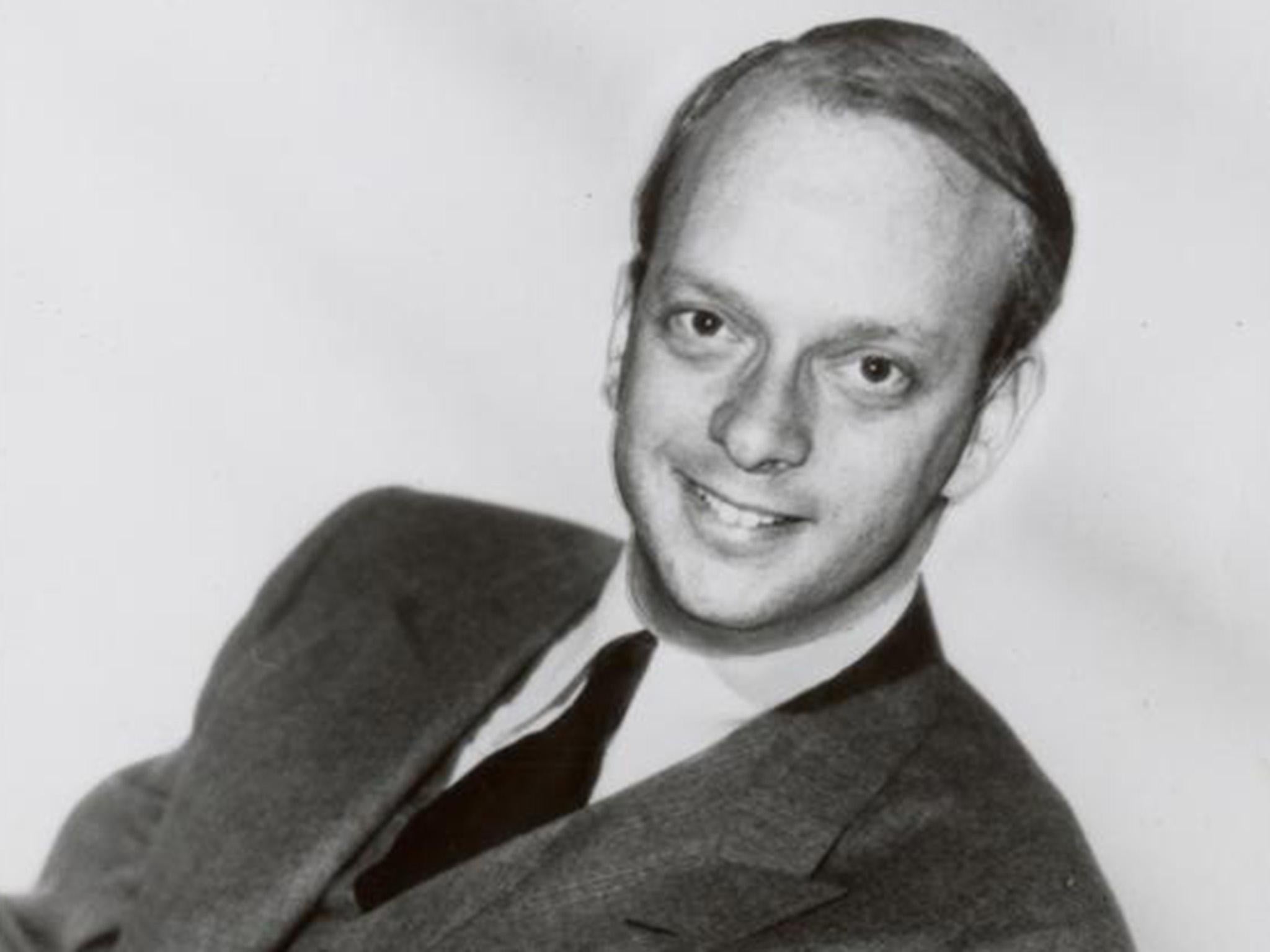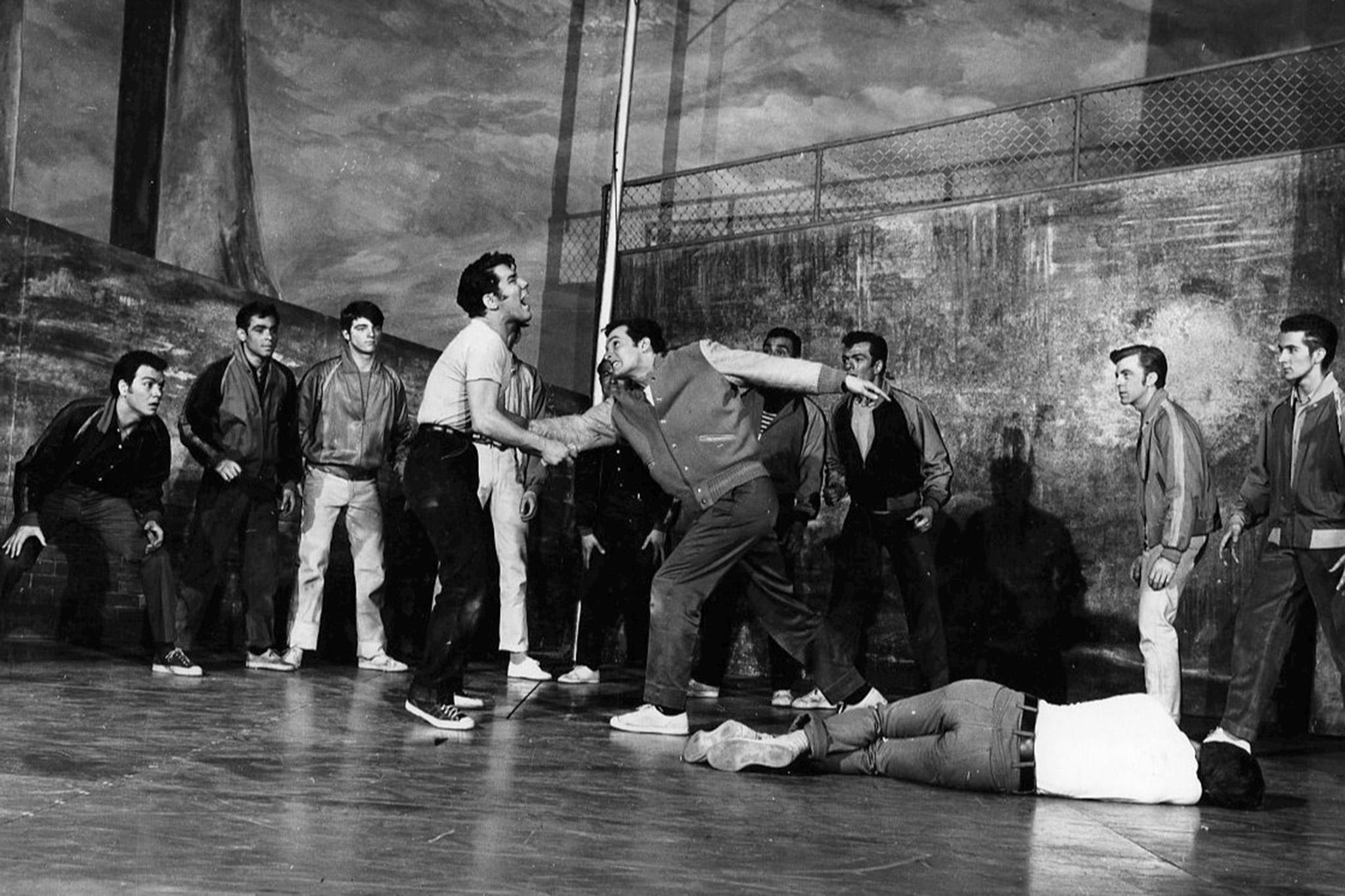Harold Prince: Impresario behind Broadway’s biggest hits
The producer and director had a hand in many of the greats of musical theatre including ‘West Side Story’ and ‘Fiddler on the Roof’

Your support helps us to tell the story
This election is still a dead heat, according to most polls. In a fight with such wafer-thin margins, we need reporters on the ground talking to the people Trump and Harris are courting. Your support allows us to keep sending journalists to the story.
The Independent is trusted by 27 million Americans from across the entire political spectrum every month. Unlike many other quality news outlets, we choose not to lock you out of our reporting and analysis with paywalls. But quality journalism must still be paid for.
Help us keep bring these critical stories to light. Your support makes all the difference.
Harold Prince was a musical theatre producer and director who championed adventurous, even demanding, fare in a field long known for escapism, and whose Broadway portfolio included West Side Story, Fiddler on the Roof, Cabaret, Sweeney Todd, Evita and The Phantom of the Opera.
Prince, who has died aged 91, collected a record 21 Tony Awards during a career spanning seven decades. He was heralded as a visionary who saw theatrical potential in the most unlikely subject matter and who helped to shepherd emerging talents, many of them composers.
He was 26 when he co-produced his first show on Broadway, The Pajama Game (1954). With songs including “Hey There” and “Steam Heat”, it brought an appealing song-and-dance style, as well as romance, to a plotline about a workers’ strike at a pyjama factory. The combination helped to secure the Tony for best musical and presaged the social concern that would characterise much of Prince’s work.
The overnight Broadway wonder then hit another home run: the baseball-meets-Faust story Damn Yankees (1955). Two years later, he provided essential backing for West Side Story, which retold Shakespeare’s Romeo and Juliet against the backdrop of warring New York street gangs.
Even the risk-embracing Prince admitted to having had reservations about the potential commercial appeal of Fiddler on the Roof (1964), based on Sholem Aleichem’s Yiddish stories about a Jewish family in tzarist Russia. He later said: “There are at least 3 million Jews in New York, and I thought that should be enough to keep the show running for a couple of seasons. But I never foresaw that Fiddler would run the way it did.” The musical, starring the magnetic Zero Mostel, won nine Tony Awards and ran for nearly eight years – a Broadway record at the time.
Prince presented the rise of fascism in Weimar Germany through the lens of a dingy, decadent nightclub with a sinister master of ceremonies in Cabaret (1966). He also mined rich political metaphors in Fiorello! (1959), about New York City mayor Fiorello La Guardia, and Evita (1978), about the scheming, image-conscious wife of Argentinian dictator Juan Peron.
Prince’s collaboration with Stephen Sondheim gave rise to many shows that are today regarded as landmarks in modern musical theatre. They included Company (1970), a meditation on marriage; Follies (1971), about a reunion of ageing chorus girls (and an expensive flop at the time); and the genre-pushing, near-operatic Sweeney Todd (1979), about a barber and baker who engage in murder and cannibalism.

Harold Smith Prince was born in New York City in 1928, the only child of what he called a “privileged, upper-middle, lower-rich class Jewish family”. His father was a Wall Street stockbroker, and his mother was an avid theatre-goer. He was captivated by the stage when he saw Orson Welles’ 1937 Broadway staging of Caesar.
He wanted to be a playwright and, after graduating from the University of Pennsylvania in 1948, he hustled his way into a low-level job with George Abbott, the writer-producer-director whose Broadway credits spanned the 20th century. Prince’s rapid advance to Abbott’s assistant stage manager was interrupted by two years of army service in West Germany, but he returned eager to make his own mark in theatre. When The New York Times gave a rave review to Richard Bissell’s novel 7½ Cents, he optioned it the next day. With two partners, Prince produced a musical based on the book. They lined up 164 investors because “none of the smart money would support us”, Prince recalled. The Pajama Game, starring John Raitt and Janis Paige as the romantic leads, ran for more than two years and earned Prince that shared first Tony Award.
The next several years resulted in smashes – Damn Yankees (1955) harvested seven Tonys, while West Side Story (1957) would become one of the all-time greats of musical theatre – and flops, such as New Girl in Town (1957), a musical based on Eugene O’Neill’s waterfront melodrama Anna Christie.
As a producer, Prince endured a long succession of high-profile flops in the late 1970s and 1980s, before composer Andrew Lloyd Webber and lyricist Charles Hart almost single-handedly revived his reputation when they asked him to direct The Phantom of the Opera, which opened in London in 1986 and on Broadway in 1988. He was credited with emphasising the title character’s sensuality and intelligence instead of slushy melodrama, as well as giving the show what he called a “mysterious, perfumey atmosphere”. The show, still running on both sides of the Atlantic, has since become the biggest box-office draw of all time.
As a director, Prince also took a rare stab at a revival with a major reconsideration in 1994 of Jerome Kern and Oscar Hammerstein II’s 1927 musical Show Boat. It ran for three years and garnered a Tony for best musical revival. But in the new century, Prince’s interest in new material was out of step with a Broadway crowded with movie adaptations and pop catalogue shows.
He is survived by his wife Judy Chaplin and two children.
Harold Prince, theatre producer and director, born 30 January 1928, died 31 July 2019
© Washington Post
Subscribe to Independent Premium to bookmark this article
Want to bookmark your favourite articles and stories to read or reference later? Start your Independent Premium subscription today.
Join our commenting forum
Join thought-provoking conversations, follow other Independent readers and see their replies
Comments